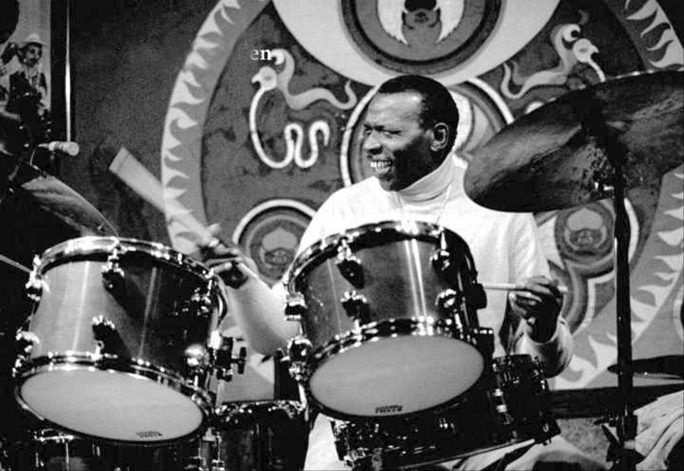
Best Deals On Clearance Sale Musical Instruments
Looking to strike a harmonious chord between your love for music and your budget? You’re in luck! The much-anticipated Clearance Sale on Musical Instruments by

If you’ve ever been captivated by the rhythmic energy of drums and found yourself yearning to pick up a pair of sticks, you might be wondering just how long does it take to learn drums? The journey of becoming a skilled drummer is an exciting and rewarding one, but it’s natural to wonder about the time and dedication it requires. Ultimately your drive and commitment determine how quickly you will pick up the drums. People typically learn how to play the drums in around two years, while there is no definitive way to predict the precise amount of time you will require.
In light of the typical intents you might have, we estimated the time required to learn the drums and included some suggestions for accelerating the process.
Every individual possesses a unique set of skills and abilities when it comes to music. Some people may have a natural aptitude for rhythm and coordination, making it easier for them to grasp drumming techniques. Additionally, individuals with prior musical experience, such as playing another instrument or having a background in music theory, may find it easier to learn Roland Electric Drums.
Consistent practice is vital when learning any instrument, including drums. The more frequently you practice, the faster you can develop muscle memory and improve your technique. Regular practice sessions allow you to reinforce what you’ve learned and build upon it progressively.
Having access to quality instruction plays a significant role in your learning journey. Whether you choose to take formal drum lessons or learn through online resources, having a knowledgeable and experienced teacher or mentor can help you understand proper techniques, provide guidance, and offer constructive feedback.
The first stage of learning drums is the beginner stage. During this phase, you’ll focus on mastering basic techniques, understanding rhythms, and developing coordination. It’s important to start with proper hand and foot positioning, as well as learning essential rudiments and drumming patterns.
Beginners will learn fundamental techniques, such as how to hold drumsticks correctly, control dynamics, and play basic drum beats. This stage lays the foundation for future progress, and it’s essential to focus on building a strong base of skills.
Developing a sense of rhythm and coordination is crucial for drummers. Beginners will learn how to read drum notation, count beats, and play simple rhythms accurately. This stage helps train your ability to synchronize your hands and feet.
Repetition is key to building muscle memory. Beginner drummers will spend time practising drumming exercises and patterns to develop muscle memory. This helps automate movements and allows you to play more fluently over time.
Once you’ve built a solid foundation, you’ll progress to the intermediate stage. At this point, you’ll start exploring different music styles, focusing on developing speed, accuracy, and playing with others in a band or ensemble setting.
Drums are versatile instruments that can be found in various music genres. Intermediate drummers will expand their repertoire by learning different styles like rock, jazz, funk, or Latin rhythms. This stage allows you to develop your own playing style and understand the intricacies of different musical genres.
Improving speed and accuracy is an ongoing process for drummers. Intermediate players will work on playing faster beats, incorporating drum fills, and improving their overall control and precision. Regular practice and focused exercises will help enhance your technical abilities.
Collaborating with other musicians is an important aspect of being a drummer. Joining a band or ensemble allows you to experience playing in a group setting, work on your communication skills, and develop the ability to groove and lock in with other musicians.
As you progress and gain more experience, you’ll enter the advanced stage of drumming. This stage focuses on mastering complex drum patterns, exploring improvisation and creativity, and performing live or recording in a studio.
Advanced drummers tackle intricate drum patterns, polyrhythms, and odd-time signatures. This stage requires a high level of coordination and mental agility. It’s a time for challenging yourself and expanding your rhythmic vocabulary.
Drummers in the advanced stage have the freedom to explore improvisation and add their own creative flair to performances. This involves experimenting with different fills, soloing techniques, and developing a unique musical voice.
Advanced drummers often have opportunities to record music in a studio setting or perform live on stage. These experiences help refine their playing skills, adapt to different environments, and engage with audiences. It represents the culmination of a lot of effort and commitment.
The timeframe for learning drums can vary significantly depending on several factors. While it’s impossible to give an exact duration, it generally takes several years to achieve proficiency. Here are some key considerations:
Each person has a different learning curve, and success can be affected by things like innate talent, prior musical training, and the quantity of practice time involved. Some individuals may grasp drumming concepts quickly, while others may require more time and effort.
It’s crucial to set realistic expectations when learning drums. Rome wasn’t built in a day, and becoming a skilled drummer takes patience and perseverance. Focus on gradual improvement rather than rushing the process. Celebrate small victories along the way. Keep at it; who knows, you might end up like these famous drummers.
Consistency and dedication are vital when learning any instrument. Regular practice sessions, attending lessons, and immersing yourself in drumming culture will accelerate your progress. You will advance more quickly the more time and effort you put into it.
Learning drums is a rewarding journey that requires time, commitment, and passion. The timeframe for becoming proficient varies from person to person, influenced by factors like natural aptitude, practice frequency, and quality of instruction. As a general rule, if you are just mastering the fundamentals of playing for fun, it should take about three months, while at least six months of practice are required to be able to play along with the music. However, it can take three years to become proficient if you want to perform in a band.
Embrace the process, enjoy the ride, and remember that progress is a continuous journey rather than a destination. For advice on how to look after your drums check out our other article on drum tuning and maintenance here.
How long does it take to become a decent drummer?
Becoming a decent drummer can take several years of consistent practice and dedication. The timeframe varies depending on individual factors and learning curves. Check out our article on beginner drum kits if you are looking to make a purchase soon
Can I learn drums without any prior musical experience?
Yes, you can learn drums without prior musical experience. However, having a basic understanding of rhythm and music theory can be beneficial.
Is it necessary to take formal drum lessons?
Formal drum lessons provide structured guidance and feedback, helping you progress faster. However, self-learning through online resources is also possible with discipline and dedication. If you are interested in any type of tuition why not contact us and find out about online or in-person lessons?
Can I learn drums on my own with online resources?
Yes, there are numerous online resources available for learning drums. Online tutorials, video lessons, and drumming communities can be valuable tools for self-learning.
What are some tips for accelerating the learning process?
Consistency, focused practice, and setting specific goals are key to accelerating your learning process. Additionally, studying different drumming styles and seeking guidance from experienced drummers can be beneficial.

Looking to strike a harmonious chord between your love for music and your budget? You’re in luck! The much-anticipated Clearance Sale on Musical Instruments by

What Famous Drummers! The world has never been short of famous drummers. Since the birth of drums in 5500 B.C. mankind has been banging to
The Music Rooms is the UK and Northern Ireland’s #1 spot for Music Tuition, Musical Instruments and Music Equipment Sales.
Unit 19 Antrim Business Park
Enakalon
Antrim
BT41 4LD
5-7 Church Street
Ballymena
Co. Antrim
BT43 6DD
21 New Row
Coleraine
County Londonderry
BT52 1AD